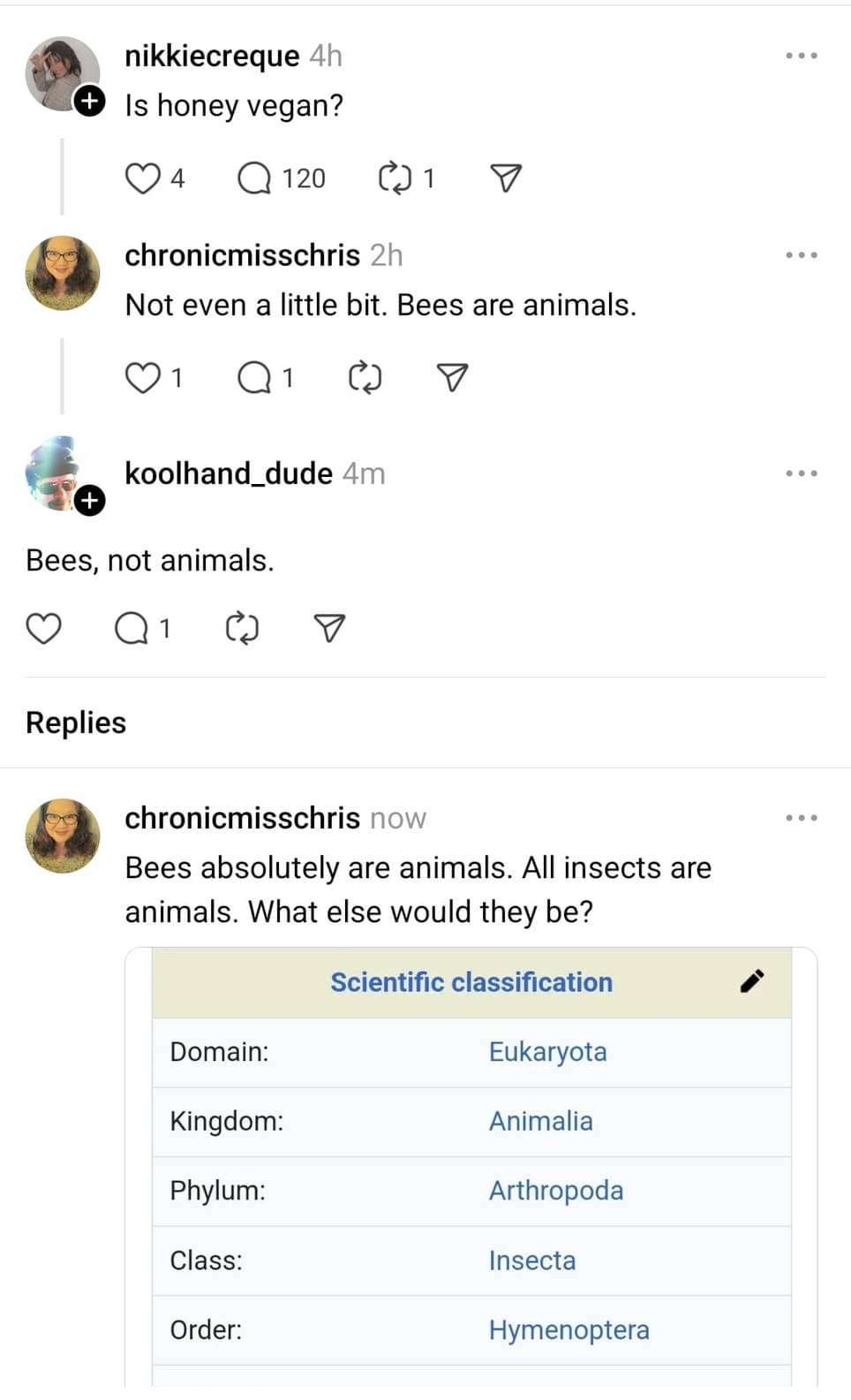this post was submitted on 19 Oct 2024
698 points (97.9% liked)
Science Memes
11161 readers
1723 users here now
Welcome to c/science_memes @ Mander.xyz!
A place for majestic STEMLORD peacocking, as well as memes about the realities of working in a lab.

Rules
- Don't throw mud. Behave like an intellectual and remember the human.
- Keep it rooted (on topic).
- No spam.
- Infographics welcome, get schooled.
This is a science community. We use the Dawkins definition of meme.
Research Committee
Other Mander Communities
Science and Research
Biology and Life Sciences
- [email protected]
- [email protected]
- [email protected]
- [email protected]
- [email protected]
- [email protected]
- [email protected]
- [email protected]
- [email protected]
- [email protected]
- [email protected]
- [email protected]
- [email protected]
- [email protected]
- [email protected]
- [email protected]
- [email protected]
- [email protected]
- [email protected]
- [email protected]
- [email protected]
- [email protected]
- [email protected]
- [email protected]
- !reptiles and [email protected]
Physical Sciences
- [email protected]
- [email protected]
- [email protected]
- [email protected]
- [email protected]
- [email protected]
- [email protected]
- [email protected]
- [email protected]
Humanities and Social Sciences
Practical and Applied Sciences
- !exercise-and [email protected]
- [email protected]
- !self [email protected]
- [email protected]
- [email protected]
- [email protected]
Memes
Miscellaneous
founded 2 years ago
MODERATORS
you are viewing a single comment's thread
view the rest of the comments
view the rest of the comments

Sure in some cases there can be an objective truth probably, although i doubt any of us is as close to it as some people seem to enjoy thinking they are. But i think what you're missing (possibly intentionally) about my point is that if you know what someone meant then they achieved the objective of communicating, and by choosing to ignore what they meant and instead focus on what they incorrectly said then i feel like you're consciously choosing to move the conversation away from 'truth' and toward 'correctness' out of some need to feel superior. There is a time and place to correct people, but lots of people (and you may or may not be one of them) seem incapable of distinguishing when it is not the right time or place.
I acknowledge that there is that as well:-). The hard part is that the OP is a joke, somewhat, so all answers seem to work within that context.
And Truth is such a very slender path between extremes - e.g. 1+1= neither 2.1 nor 1.9, but exactly 2 in-between.
So if I say that Truth matters, generally speaking, and you say that it depends on the context, then strictly speaking your argument must win. e.g. in a discussion between literally toddlers the facts would not matter, hence you are most definitely correct that there exists some scenarios where it does not.
I was bemoaning how society in general chooses for it not to matter, more often than the reverse - yes, definitely the road less traveled for sure. We all exist on that spectrum, with choices as to when and where and what and why and how.
And how ironic that we are nitpicking on these points to find the real Truth - that was supposed to be my schtick! But instead we will share it together:-). And here I am not joking: since I do value Truth, I enjoy both of our POVs here: sometimes Truth matters, sometimes it does not, but in general I wish people would value it more often than happens currently, even though sometimes indeed it can get in the way of other things too, like friendships.
Okay but words are not math. Language exists solely for the purpose of communicating ideas, and if you understand the idea that someone is trying to convey and that idea is not false, but their word choice is inaccurate then you most definitely are just nit-picking, and its not in search of some greater 'truth' because the actual truth of the conversation is what they were intending. I feel like you're conflating truth with accuracy. Misusing the word animal when you mean mammal is not false in the same way as saying the sky is green or the covid vaccine gives you aids. Words can also have multiple meanings, which lends itself to more than one truth. Theres the scientific definition, and as i mentioned, the colloquial usage. So if a majority of the population understands a word to mean one thing in one context and another thing in a different context, and you willfully ignore that societal understanding in favor of 'scientific validation', then you are again ignoring a form of truth.
How do you make sure you understood the idea if the word choice is incorrect? You may assume from context what the idea was, but you may as well assume wrong. And the more such assumptions exist in one dialogue, the further it is from information exchange, and the closer it is to not listening at all because you already knew the context before the dialogue